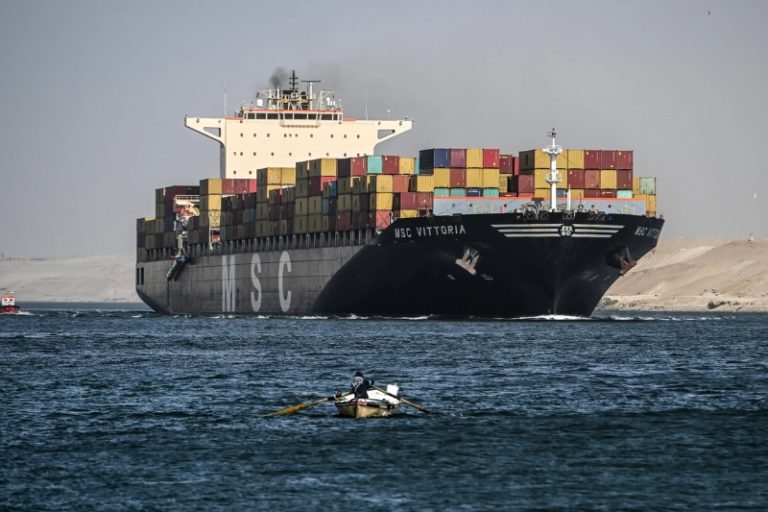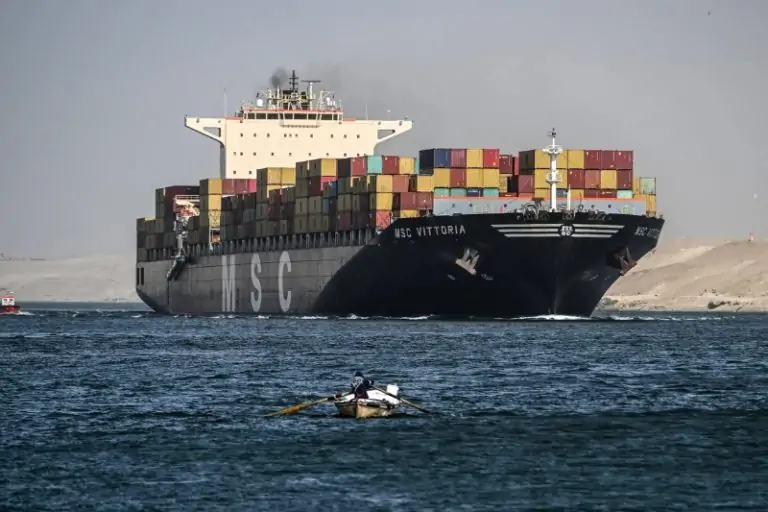China, the world’s second-largest economy and Africa’s largest trading partner, has been facing increasing pressure and challenges in its business operations and investments in Africa, due to the ongoing crisis in the Red Sea. The Red Sea, a strategic waterway that connects Asia, Africa, and Europe, has been the scene of frequent attacks and threats by the Houthi rebels, who control parts of Yemen and oppose the Saudi-led coalition that supports the Yemeni government. The Houthi attacks have disrupted and endangered the maritime traffic and trade that pass through the Red Sea, especially the Suez Canal, which is a vital route for China’s energy imports and exports to and from Africa.
The Red Sea crisis has posed various impacts and risks for China’s African business, such as:
- Higher costs and delays: The Red Sea crisis has increased the costs and delays of China’s shipping and logistics in Africa, as the Chinese firms and vessels have to pay higher insurance premiums, security fees, and transit fees, and as they have to face longer waiting times, diversions, and inspections. The higher costs and delays have reduced the efficiency and profitability of China’s trade and investment in Africa, and have affected the supply and demand of goods and services in both markets.
- Lower security and stability: The Red Sea crisis has lowered the security and stability of China’s assets and personnel in Africa, as the Chinese firms and vessels have become more vulnerable and exposed to the attacks and threats by the Houthi rebels and other armed groups. The lower security and stability have increased the uncertainty and complexity of China’s business environment and operations in Africa, and have threatened the safety and well-being of the Chinese workers and expatriates in the region.
- Greater competition and pressure: The Red Sea crisis has created more competition and pressure for China’s African business, as the Chinese firms and vessels have to contend with the presence and influence of other regional and international actors, such as the US, the EU, India, and Turkey, who have also been involved and affected by the crisis. The greater competition and pressure have challenged China’s strategic and economic interests and advantages in Africa, and have required China to balance and coordinate its relations and cooperation with the other stakeholders in the region.
Keep Reading
Responses and strategies of China’s African business
The responses and strategies of China’s African business to the Red Sea crisis are diverse and dynamic, but some of the main ones are:
- Adapting and diversifying: China’s African business has been adapting and diversifying its shipping and logistics options and routes in Africa, by using alternative and safer modes and channels of transportation, such as air, land, and rail, and by exploring and developing new and potential ports and markets, such as Djibouti, Kenya, and Tanzania. China’s African business has also been adapting and diversifying its trade and investment portfolio and partners in Africa, by focusing and expanding on sectors and areas that are less affected or more resilient to the crisis, such as infrastructure, digital, and green industries, and by engaging and collaborating with local and regional actors and institutions, such as the African Union, the African Continental Free Trade Area, and the Regional Economic Communities.
- Enhancing and strengthening: China’s African business has been enhancing and strengthening its security and risk management measures and capabilities in Africa, by investing and deploying more resources and personnel, and by adopting and applying more advanced and effective methods and technologies, such as satellite, drone, and artificial intelligence, to monitor and protect its assets and personnel in the region. China’s African business has also been enhancing and strengthening its communication and coordination mechanisms and platforms in Africa, by establishing and maintaining regular and timely contacts and exchanges with the relevant authorities and agencies, and by participating and contributing to the multilateral and bilateral dialogues and initiatives, such as the Forum on China-Africa Cooperation, the China-Africa Joint Research and Exchange Program, and the China-Africa Peace and Security Forum.
- Learning and innovating: China’s African business has been learning and innovating from its experiences and challenges in the Red Sea crisis, by conducting and applying more research and analysis, and by seeking and creating more opportunities and solutions, to improve and optimize its business performance and outcomes in Africa. China’s African business has also been learning and innovating from its interactions and collaborations with other actors and stakeholders in the region, by sharing and exchanging best practices and lessons learned, and by exploring and developing new and joint projects and programs, to enhance and advance its business relations and cooperation in Africa.
China’s African business has been under pressure and challenge from the Red Sea crisis, which has disrupted and endangered the maritime traffic and trade that pass through the strategic waterway, especially the Suez Canal. The Red Sea crisis has posed various impacts and risks for China’s African business, such as higher costs and delays, lower security and stability, and greater competition and pressure. China’s African business has also adopted various responses and strategies to cope and deal with the Red Sea crisis, such as adapting and diversifying, enhancing and strengthening, and learning and innovating. The Red Sea crisis has been a test and an opportunity for China’s African business, which has shown its resilience and potential in the region.
February 22, 2024 3:25 pm

